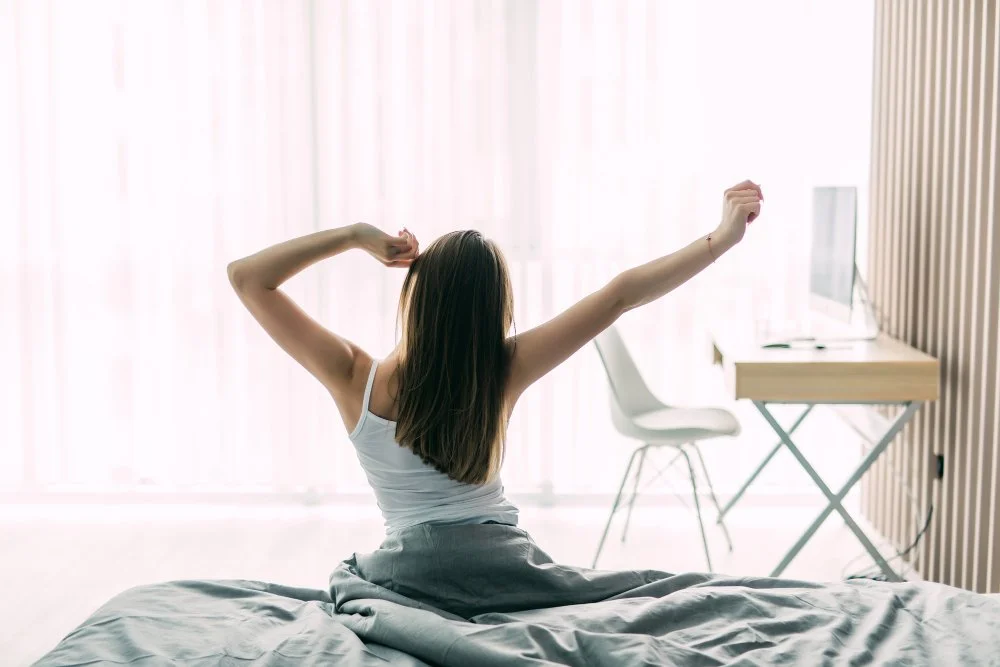Why 8 Hours Doesn't Feel Like Enough
We’ve all been there; you wake up after what you thought was a full 8 hours of sleep but your brain feels foggy, your eyes are super heavy, words feel jumbled and you're exhausted. But, you got your 8 hours!
So, why are you still sleepy after 8 hours?
1. You’re getting over sleep deprivation
Many of us were told that sleeping in on weekends will help make up for short sleep during the week.
MYTH: BUSTED!!!! It can take up to 4 days to make up for a single hour of lost sleep. So if you’re getting less than 7 hours consistently, you could need up to a month to feel like 8 hours is enough.
We know that sounds like a lot, but like changing your eating habits, workout schedule or any other health-based lifestyle choices, time and consistency is key.
If you need to get over sleep deprivation:
Start ASAP
Be consistent
Be realistic with how much you’re sleeping
Make sleep a priority
Check out our list of sleep tips to help you own your sleep schedule.
2. You’re not really getting 8 hours
With sleep, it’s not just about laying in bed for 8 hours. When we say 8 hours of sleep, we mean 8 hours of eyes closed, conked-out, snoring and drooling sleep.
If you want to spend time reading or scrolling on your phone, make sure you’re accounting for that taking out of your sleep time. If you’re reading for an hour before bed and need to get up at 7, make sure you’re hopping under the covers for 9:30 so you can be lights off by 10:45 and asleep by 11. It’s the pre-sleep time that many people don’t take into account when calculating their “sleep” time.
3. Your 8 hours isn’t a quality 8
The quality of your sleep impacts how rested you feel. How well you sleep is determined by your sleep situation, your daily habits and what you do before bed.
Dark, cool rooms with comfortable clothing, back and neck support and no disruptions makes your night of sleep quality sleep while you sleep. White noise can hide any disruptions and a cozy mattress can help you feel supported.
Your quality of sleep can also be affected by how you spend your time before bed and during the day. Getting some exercise during the day, staying hydrated, limiting caffeine before bed, winding down and slowing down your mind, and other pre-bed routines are great to boost the quality of your sleep.
Like most things in life, sleep is more than just laying down your head. So be aware of how you’re spending your waking moments and how it can impact your sleep quality.
4. You aren’t handling your sleep inertia or morning fog well
It’s rare to feel totally awake when you first wake up. If a full night of sleep doesn’t feel like enough (and you’re sure you’re maxed up on your sleep-meter), you might just be rushing into the “awake” feeling.
When you first get up, drink a glass of water and get your face in the sunshine. Natural light can help you wake up. Drinking water gives your brain a burst of hydration that can shake morning fog. Having these (or any other) first-thing-in-the-morning activities can get you out of bed right away.
That is honestly the hardest part. If you don’t get up, you’re more likely to hit snooze. And hitting snooze can end up making you feel sleepier.
Making 8 hours enough
If you’re struggling to feel awake and lively after 8 hours of sleep, be honest with yourself about how much you're sleeping, the quality of your sleep and if you’re catching up on a lack of sleep. Once you’ve done that, then you can make adjustments to your sleep routine to help solve the problem.
If you’re doing all the things and nothing is changing, you may want to book a sleep study to identify anything that could be happening while you sleep. They’re covered by OHIP too! Speak to your doctor today and learn more about how you sleep.


